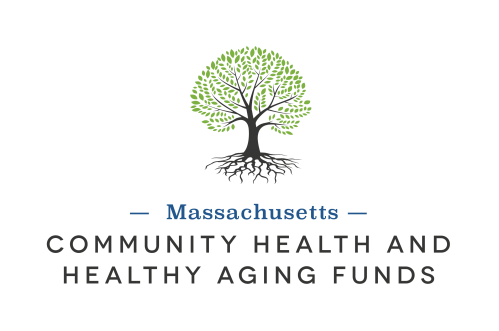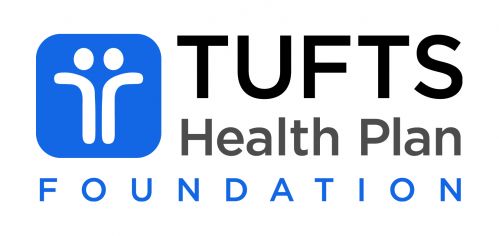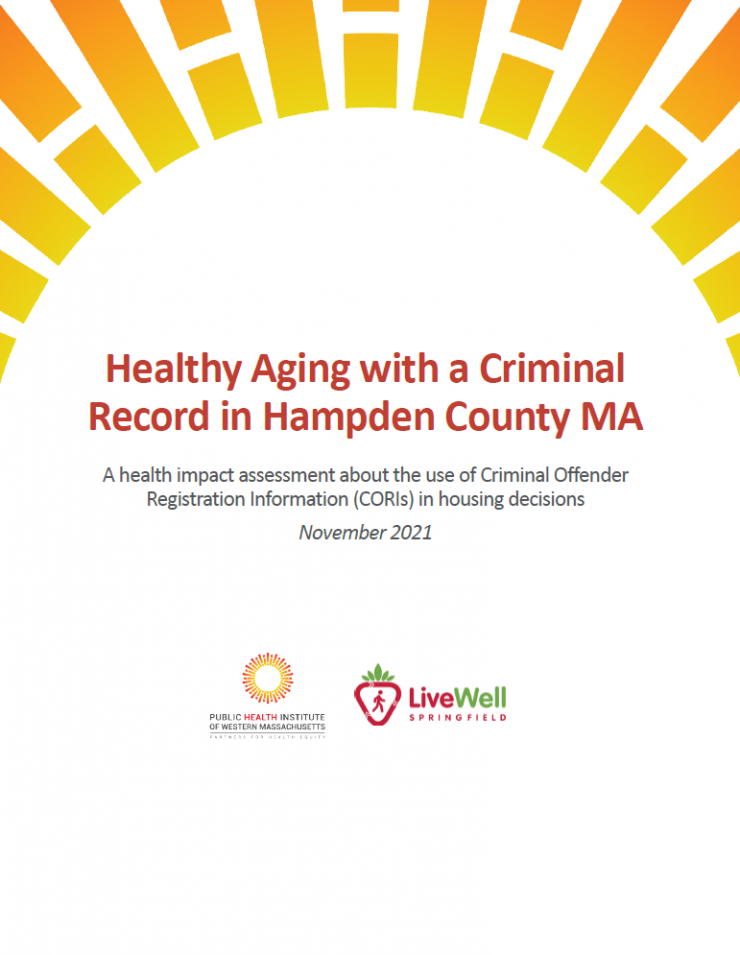Read the Report
In this report, we explore how potential changes to housing policies and practices regarding criminal background checks might impact the health of residents, specifically older people with a CORI.
We are grateful for your time in reading and digesting this important health impact assessment (HIA). Housing is paramount to all human beings’ wellbeing.
About the Project
PHIWM is conducting a health impact assessment (HIA) to answer the question, “If housing providers changed policies and practices about criminal background checks, what affect would that have on health?”
Why Conduct this Health Impact Assessment?
In 2019, the Public Health Institute of Western Massachusetts’ (PHIWM) Age Friendly City housing assessment found that older Black men in Springfield had a shared experience of not being able to secure affordable housing because of CORI (Criminal Offender Record Information) checks. The 2018 City of Springfield Housing Study concluded the same - CORI checks create affordable housing access inequities for Black men in Springfield, compounding existing housing inequities experienced by people of color in the City of Springfield and surrounding areas. Blacks and Latinos are consistently incarcerated in the Hampden County Jail at a rate about 3.5 times that of Whites[i], which means CORI checks have a disproportionate impact on people of color. Additionally, the affordable housing stock is limited.
Goals
The goals for this health impact assessment (HIA) about the health impacts of changing practices around the use of criminal background check in affordable housing decisions are:
- authentically engage a diverse representation of stakeholders, including older adults of color, in the HIA;
- make predictions and recommendations about selected policies and practices impact on equity and health in target communities;
- monitor changes in policy or practice through the implementation phase.
[i] Vera Institute of Justice. 2018. Incarceration Trends. Incarceration Trends, Hampden County, MA
The Policies & Practices Under Study
Our Advisory Committee directed us to study the impacts of 6 policies or practices:
- Limit the use of CORIs in housing application decisions to only mandatory HUD guidelines* once eligibility is determined
- Establish formal partnerships between housing providers and reentry organizations, behavioral health providers, and organizations that provide services to people experiencing homelessness and housing instability.
- Allow mitigating circumstances to be submitted during the initial application period without any requirement to disclose past convictions
- Create explicit criteria for denial that is available publicly
- Share population-level data about number of people denied housing, along with reasons for denials (including criminal background check), number of people requesting hearings, and the results of those hearings.
- Permit family members to house people with a CORI, excepting mandatory HUD guidelines
* The only criminal background that HUD mandates exclusion from public housing are 1) being registered on the lifetime sex offender registration list and 2) conviction for producing methamphetamines on federal property. Exclusion for any other crimes is left to the discretion of individual LHAs.
HIA Advisory Committee
- Jasmine Akuffo, National Association of City and County Health Officials (NACCHO)
- Meris Bergquist, Mass Fair Housing Center
- John Fisher, Way Finders
- Alyssa Golden, Community Legal Aid
- Samantha Hamilton, LiveWell Springfield
- Richard Johnson, Debra Hunt Center, New North Citizen’s Council
- Denise Jordan, Springfield Housing Authority
- Madeline LaSanta, All Inclusive Support Services, Hampden County Sheriff’s Department
- Gerry McCafferty, City of Springfield Office of Housing
- Richard Mills, LiveWell Springfield
- Lamont Scott, Men of Color Health Awareness (MOCHA)
- Henry Oostrom-Shah, Boston University School of Law
- Kathleen Szegda, Public Health Institute of Western Massachusetts
- Marie Claire Tran-Leung, Sargent Shriver Center on Poverty Law
Funders
This work has been funded by Massachusetts Community Health & Healthy Aging Funds and the Tufts Health Plan Foundation.


Reports & Presentations
Read the report!
In this report we explore how potential changes to housing policies and practices regarding criminal background checks might impact the health of residents, specifically older people with a CORI.
We are grateful for your time in reading and digesting this important health impact assessment (HIA). Housing is paramount to all human beings’ wellbeing.
Events
-
American Public Health Association Annual Meeting and Expo, 11/7/22: Dr. Kathleen participated in a poster session at APHA’s Annual Meeting, sharing findings from our health impact assessment about the use of CORIs in housing decisions. Download the poster.
-
Community Presentation, 12/8/2021 from 11:00 AM - 12:30 PM: Join us for a community presentation hosted by the Live Well Springfield and the Public Health Institute of Western MA. This presentation will provide residents and partners with an overview of the Health Impact Assessment process, key results, recommendations for policy and systems change, and resources to access housing.
- Housing Rights for People with a Criminal History, 2021 Fair Housing and Civil Rights Conference, 4/26/21: People with a record of incarceration, conviction, and arrest face steep barriers to finding affordable housing, due to screening requirements that - depending on the housing provider - can often end up as a blanket refusal with no consideration of the circumstances of their lives. For this reason, people who have been incarcerated have a 7 to 11 times higher risk of homelessness. This panel discussed the barriers and impacts that people face along with innovative solutions that are happening around the country and in Massachusetts. The panel was moderated by Kim Gilhuly. Panelists included housing providers who have tackled this issue, advocates, researchers, and people directly impacted by mass incarceration and its collateral consequences. Watch the recording now!


